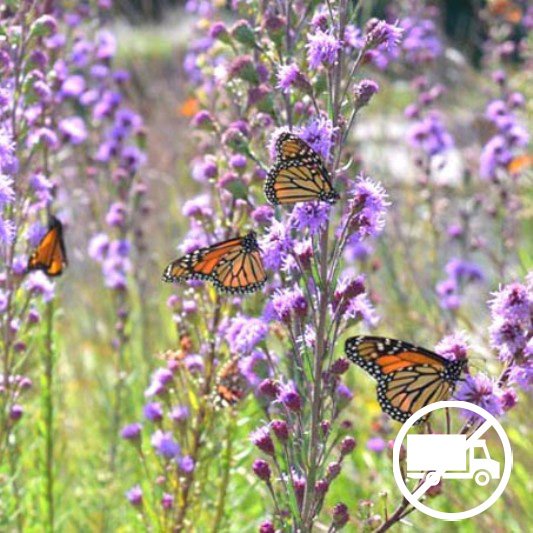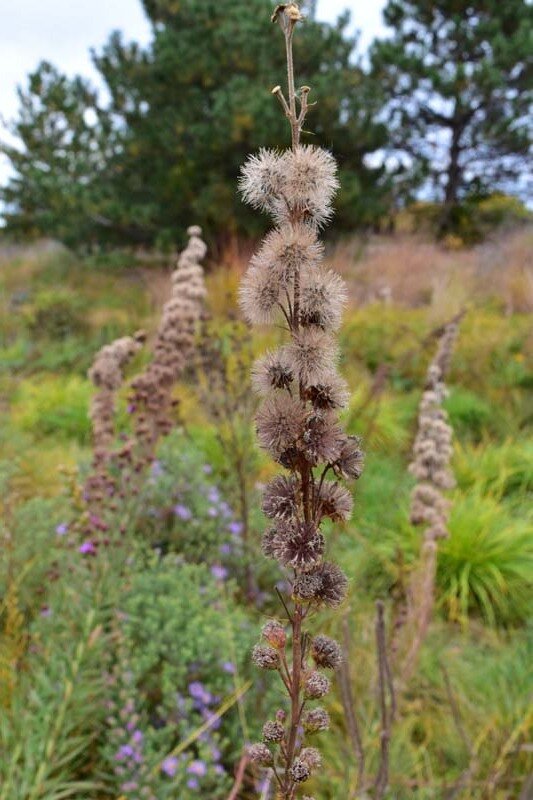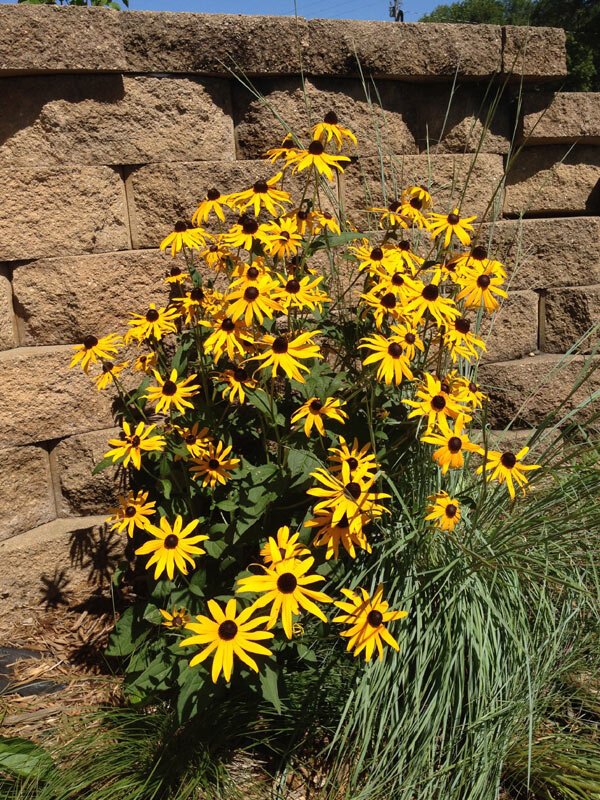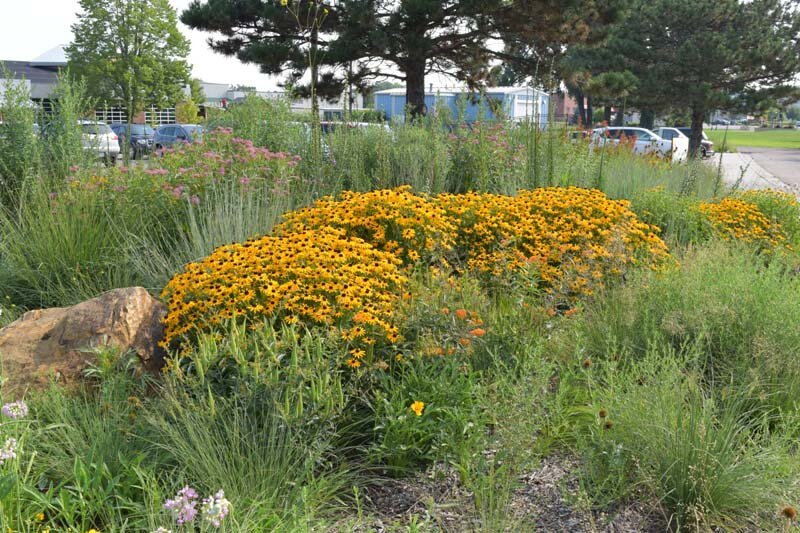 Image 1 of 9
Image 1 of 9

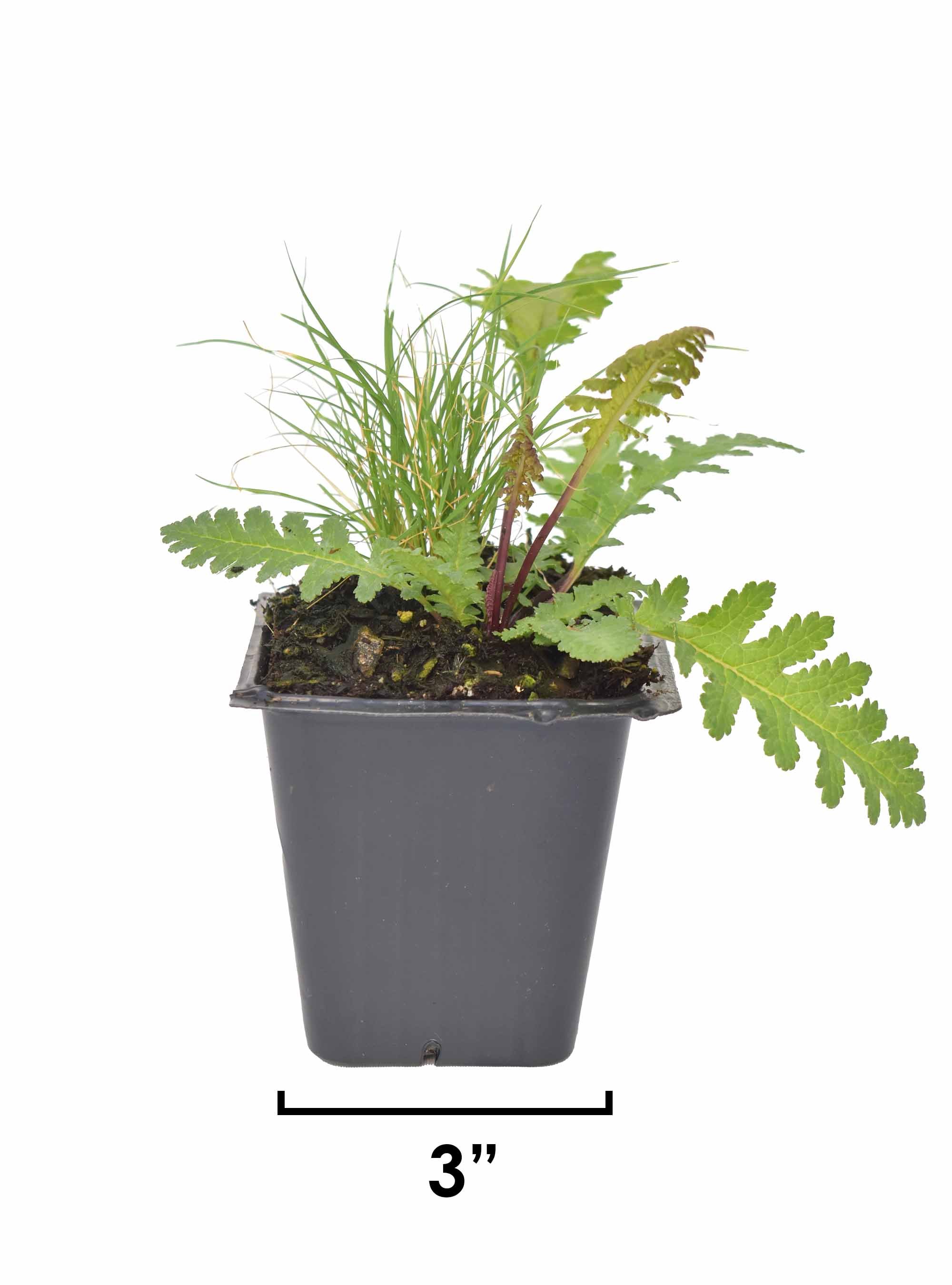 Image 2 of 9
Image 2 of 9

 Image 3 of 9
Image 3 of 9

 Image 4 of 9
Image 4 of 9

 Image 5 of 9
Image 5 of 9

 Image 6 of 9
Image 6 of 9

 Image 7 of 9
Image 7 of 9

 Image 8 of 9
Image 8 of 9

 Image 9 of 9
Image 9 of 9










Wood Betony (Pedicularis canadensis) 3-pack of pots
Can’t be shipped. We won’t have Wood Betony plants available this year—maybe again in 2026.
Wood Betony is a valuable native flower that is an indicator of pristine prairies. It’s semi-parasitic, which means the roots of Wood Betony attach to the roots of nearby host plants and uptake some nutrients. In prairies, this parasitism helps reduce the growth of the tall prairie plants and helps the shorter, more conservative plants get sun and survive in the understory. It doesn’t majorly impact the growth of nearby host plants; if you didn’t know it was semi-parasitic, you probably wouldn’t notice a difference.
We enjoy planting Wood Betony in gardens because it is very short, blooms in spring, and provides early season nectar for bumblebees.
We are one of the only nurseries in North America where you can buy Wood Betony, and like our other hard-to-find natives, it is grown in our greenhouse from seed and never wild dug.
Note: Because Wood Betony is semi-parasitic and grows best with a host plant, we sell our Wood Betony in pots with a short sedge or grass as a host plant. Our wood Betony plants are all planted with Blue Grama Grass which is one of the best host grasses because it is so short. Blue Grama Grass prefers full sun or part shade but if you want to plant Wood Betony in a shady place it’s not a problem—the Blue Grama Grass will survive and support the Wood Betony while the roots find a new host such as nearby shade plants or trees (it has a very wide range of hosts).
FAQ:Is Wood Betony hard to grow? Wood Betony is easy to garden with—germinating the seed is the difficult part but we already have that covered! Once they are planted in the ground they are the same to grow as any other perennial. Once or twice a year we might snip the host plant down (grass or sedge) to provide more sun to the Wood Betony leaves which grow very close to the ground.
Also available in 12-packs of plugs here
Details
Perennial
Sun: Full Sun, Part Shade
Moisture: Dry, Medium
Height: 10 inches
Blooms: May, June
Color: Yellow
Spacing: 12″
Spreads: 4” a year by roots
Zones: 3-8
Benefits: Pollinators
Design Tips
Wood Betony (Pedicularis canadensis) is a short spring bloomer and spreads a little each year by rhizomes, or roots. The host plant (grass or sedge) can be cut back once or twice a growing season to provide more sun to the very short Wood Betony leaves but it's not necessary. In gardens, it’s a perfect plant for short borders, providing early spring color in gardens. It can also be planted throughout a garden to help tame down taller natives.
Great native plant choice for the Minnesota Lawns to Legumes grant program!
Companion Plants
Blue Grama Grass
Prairie Smoke
Hoary Puccoon
Prairie Phlox
Size: 3-pack of pots, each pot is 3" wide x 3" deep
Can’t be shipped. We won’t have Wood Betony plants available this year—maybe again in 2026.
Wood Betony is a valuable native flower that is an indicator of pristine prairies. It’s semi-parasitic, which means the roots of Wood Betony attach to the roots of nearby host plants and uptake some nutrients. In prairies, this parasitism helps reduce the growth of the tall prairie plants and helps the shorter, more conservative plants get sun and survive in the understory. It doesn’t majorly impact the growth of nearby host plants; if you didn’t know it was semi-parasitic, you probably wouldn’t notice a difference.
We enjoy planting Wood Betony in gardens because it is very short, blooms in spring, and provides early season nectar for bumblebees.
We are one of the only nurseries in North America where you can buy Wood Betony, and like our other hard-to-find natives, it is grown in our greenhouse from seed and never wild dug.
Note: Because Wood Betony is semi-parasitic and grows best with a host plant, we sell our Wood Betony in pots with a short sedge or grass as a host plant. Our wood Betony plants are all planted with Blue Grama Grass which is one of the best host grasses because it is so short. Blue Grama Grass prefers full sun or part shade but if you want to plant Wood Betony in a shady place it’s not a problem—the Blue Grama Grass will survive and support the Wood Betony while the roots find a new host such as nearby shade plants or trees (it has a very wide range of hosts).
FAQ:Is Wood Betony hard to grow? Wood Betony is easy to garden with—germinating the seed is the difficult part but we already have that covered! Once they are planted in the ground they are the same to grow as any other perennial. Once or twice a year we might snip the host plant down (grass or sedge) to provide more sun to the Wood Betony leaves which grow very close to the ground.
Also available in 12-packs of plugs here
Details
Perennial
Sun: Full Sun, Part Shade
Moisture: Dry, Medium
Height: 10 inches
Blooms: May, June
Color: Yellow
Spacing: 12″
Spreads: 4” a year by roots
Zones: 3-8
Benefits: Pollinators
Design Tips
Wood Betony (Pedicularis canadensis) is a short spring bloomer and spreads a little each year by rhizomes, or roots. The host plant (grass or sedge) can be cut back once or twice a growing season to provide more sun to the very short Wood Betony leaves but it's not necessary. In gardens, it’s a perfect plant for short borders, providing early spring color in gardens. It can also be planted throughout a garden to help tame down taller natives.
Great native plant choice for the Minnesota Lawns to Legumes grant program!
Companion Plants
Blue Grama Grass
Prairie Smoke
Hoary Puccoon
Prairie Phlox
Size: 3-pack of pots, each pot is 3" wide x 3" deep
Can’t be shipped. We won’t have Wood Betony plants available this year—maybe again in 2026.
Wood Betony is a valuable native flower that is an indicator of pristine prairies. It’s semi-parasitic, which means the roots of Wood Betony attach to the roots of nearby host plants and uptake some nutrients. In prairies, this parasitism helps reduce the growth of the tall prairie plants and helps the shorter, more conservative plants get sun and survive in the understory. It doesn’t majorly impact the growth of nearby host plants; if you didn’t know it was semi-parasitic, you probably wouldn’t notice a difference.
We enjoy planting Wood Betony in gardens because it is very short, blooms in spring, and provides early season nectar for bumblebees.
We are one of the only nurseries in North America where you can buy Wood Betony, and like our other hard-to-find natives, it is grown in our greenhouse from seed and never wild dug.
Note: Because Wood Betony is semi-parasitic and grows best with a host plant, we sell our Wood Betony in pots with a short sedge or grass as a host plant. Our wood Betony plants are all planted with Blue Grama Grass which is one of the best host grasses because it is so short. Blue Grama Grass prefers full sun or part shade but if you want to plant Wood Betony in a shady place it’s not a problem—the Blue Grama Grass will survive and support the Wood Betony while the roots find a new host such as nearby shade plants or trees (it has a very wide range of hosts).
FAQ:Is Wood Betony hard to grow? Wood Betony is easy to garden with—germinating the seed is the difficult part but we already have that covered! Once they are planted in the ground they are the same to grow as any other perennial. Once or twice a year we might snip the host plant down (grass or sedge) to provide more sun to the Wood Betony leaves which grow very close to the ground.
Also available in 12-packs of plugs here
Details
Perennial
Sun: Full Sun, Part Shade
Moisture: Dry, Medium
Height: 10 inches
Blooms: May, June
Color: Yellow
Spacing: 12″
Spreads: 4” a year by roots
Zones: 3-8
Benefits: Pollinators
Design Tips
Wood Betony (Pedicularis canadensis) is a short spring bloomer and spreads a little each year by rhizomes, or roots. The host plant (grass or sedge) can be cut back once or twice a growing season to provide more sun to the very short Wood Betony leaves but it's not necessary. In gardens, it’s a perfect plant for short borders, providing early spring color in gardens. It can also be planted throughout a garden to help tame down taller natives.
Great native plant choice for the Minnesota Lawns to Legumes grant program!
Companion Plants
Blue Grama Grass
Prairie Smoke
Hoary Puccoon
Prairie Phlox
Size: 3-pack of pots, each pot is 3" wide x 3" deep
You Might Also Like
